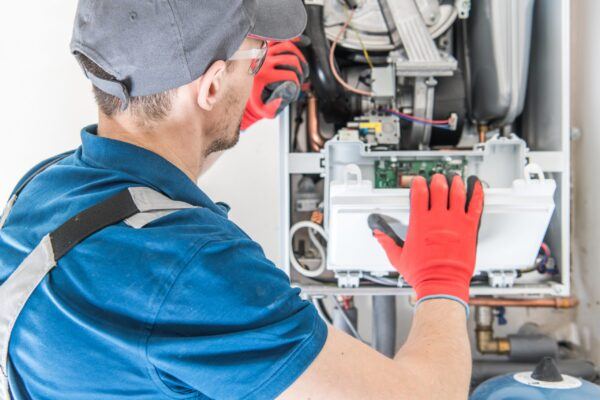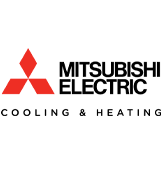
As state and national legislation increasingly target common home appliances, the value, availability, and benefits of choosing gas-fired options are all changing. For many years, gas furnaces were the top choice for home heating throughout much of the nation. However, with Las Vegas, NV working hard to track its carbon footprint and minimize its carbon emissions, it’s important to consider the benefits and drawbacks of these appliances before installing one.
Life Expectancy of Gas vs. Electric Furnaces
One of the first questions homeowners ask when choosing HVAC equipment is how long different heaters will last. After all, once you’ve paid for heating system replacement or had a home’s first whole-house heating solution put in, you shouldn’t have to do any major out-of-pocket spending for quite some time.
The service life of residential heating systems varies according to multiple factors. For any heating system to last as long as its manufacturer expects it to, it must:
- Be properly installed
- Receive routine maintenance
- Be properly sized for the intended service area
- Receive timely repairs when problems arise
Many electric furnaces that meet these prerequisites last between 20 and 30 years. Comparable gas furnaces that meet these prerequisites last just 15 to 20 years. Thus, if you’re looking for the most enduring heating equipment your money can buy, gas furnaces may not be your first choice.
Upfront Costs and Increased Maintenance
All types of furnaces perform best with regular, professional maintenance and repairs. However, furnaces that produce heat by combusting natural gas require more complex venting systems and regular inspections.
When things go wrong with gas furnaces, your safety may be compromised. As such, annual inspections are absolutely essential. This yearly servicing is an opportunity for HVAC technicians to check for build-ups of condensation, backflow issues, air leaks, and venting system damage, among other things. Although electric heating systems also require regular inspections and maintenance, negligence in these areas is far less likely to result in human harm.
Gas Furnaces Can Make a Lot of Noise
Compared to electric furnaces, gas furnaces are noisy. This is especially true as they grow older. Even a newly installed gas furnace will make noise every time its burners ignite. However, given that both gas and electric furnaces are part of forced air heating systems, you may eventually contend with whistling, humming, and banging noises as your ductwork ages. Many homeowners live with recurring clanging sounds during operation after their furnace has passed the 10-year mark. But overall, if you want a heating system that does its job inconspicuously, you should probably consider an electric model.
The Risk of Carbon Monoxide Exposure
The incomplete combustion of any fuel produces harmful exhaust gases. With gas furnaces, a primary concern is carbon monoxide (CO) gas. Although CO is routed outside the home along with other exhaust gases, problems with the furnace venting system can put everyone in danger. These can include having outside vents blocked by fast-growing foliage or ice during unexpected cold snaps. Common pests can find a point of ingress and cause structural damage to furnace venting systems. Like all heating system components, venting systems can also experience age-related wear.
Although every home with gas-fired appliances is required to have carbon monoxide detectors installed, there’s still the very real risk of CO exposure and possible CO poisoning. Upgrading to all-electric appliances is the only way to completely eliminate this risk.
The View of Gas Furnaces Is Fast-Changing
Gas-fired furnaces certainly have their merits. Unfortunately, as concern for the natural environment rises, many legislators and consumers are on the hunt for more eco-friendly alternatives to natural gas. Whether this is a change that you support or one that you’re staunchly opposed to, it’s vital to consider how changing attitudes will eventually impact the availability and legality of gas appliances in the near future.
With the stated target of reducing Nevada’s greenhouse gas emissions by 45% by the year 2030, current state policy goals concerning gas furnaces are surprisingly lenient. Unlike other states and municipalities that have issued outright bans on the installation of new gas-fired heaters, Nevada has yet to institute any major restrictions on these appliances. However, the conversation about climate change isn’t going away. Yearly in-state tracking and reporting of emissions are expected to lead to legislation that eventually imposes gas furnace restrictions.
Although future legislation won’t have an impact on whether or not you can install a gas furnace right now, it may have an impact on the infrastructure that will support these furnaces in the future. If you’re thinking about retrofitting an older home to support a new gas furnace, you should note that the results of this project may prove viable for just 15 to 20 years.
The Benefits of Installing a Gas Furnace
Compared with oil furnaces, there are good reasons why gas furnaces have enjoyed such a long run as a top heating choice. To start, natural gas is easy to access in many areas. Signing up for natural gas service is a cinch wherever pipelines are present. Moreover, unlike home heating oil, there’s no need to store this fuel or have it regularly delivered. For these reasons alone, people who’ve moved to Las Vegas from areas where heating oil is commonly used are often impressed by the level of convenience that natural gas users enjoy.
Compared to electric furnaces, gas furnaces heat homes quickly. As soon as a gas furnace’s burners come on, it rapidly reaches maximum temperature. This is an area where electric furnaces simply don’t measure up. It takes a while for electric heaters to build up and distribute adequate heat. Although electric furnaces can create cozy, comfortable living environments and keep them that way, gas furnaces do it much faster.
Using a gas furnace can also cost much less than using an electric model. This is because natural gas is less expensive than electricity. This means lower energy bills from month to month and less spending on heating fuel throughout the entire lifespans of these units. However, these savings are offset by higher installation costs, shorter lifespans, and greater maintenance needs.
In optimal conditions, natural gas is a clean-burning fuel. If a unit is properly maintained, gas furnaces tend to have fairly modest carbon footprints. There’s also the fact that most electricity sold and distributed by local utility companies is produced using fossil fuels. Thus, even an electric heater has a carbon footprint by proxy. However, as more residents of Las Vegas install solar panels and sell excess solar energy back to the grid, this disparity will gradually decrease over time.
At Polar Air & Heating, Inc., we offer air conditioner, heater, and heat pump installation, maintenance, and repair. We also provide a range of indoor air quality services. We’re committed to helping our clients make informed decisions about their home heating systems. With attitudes towards gas-fired appliances fast-changing, there’s definitely a lot to consider. If you need help finding the right whole-house heating solution for your Las Vegas, NV home, give Polar Air & Heating, Inc. a call today!




















